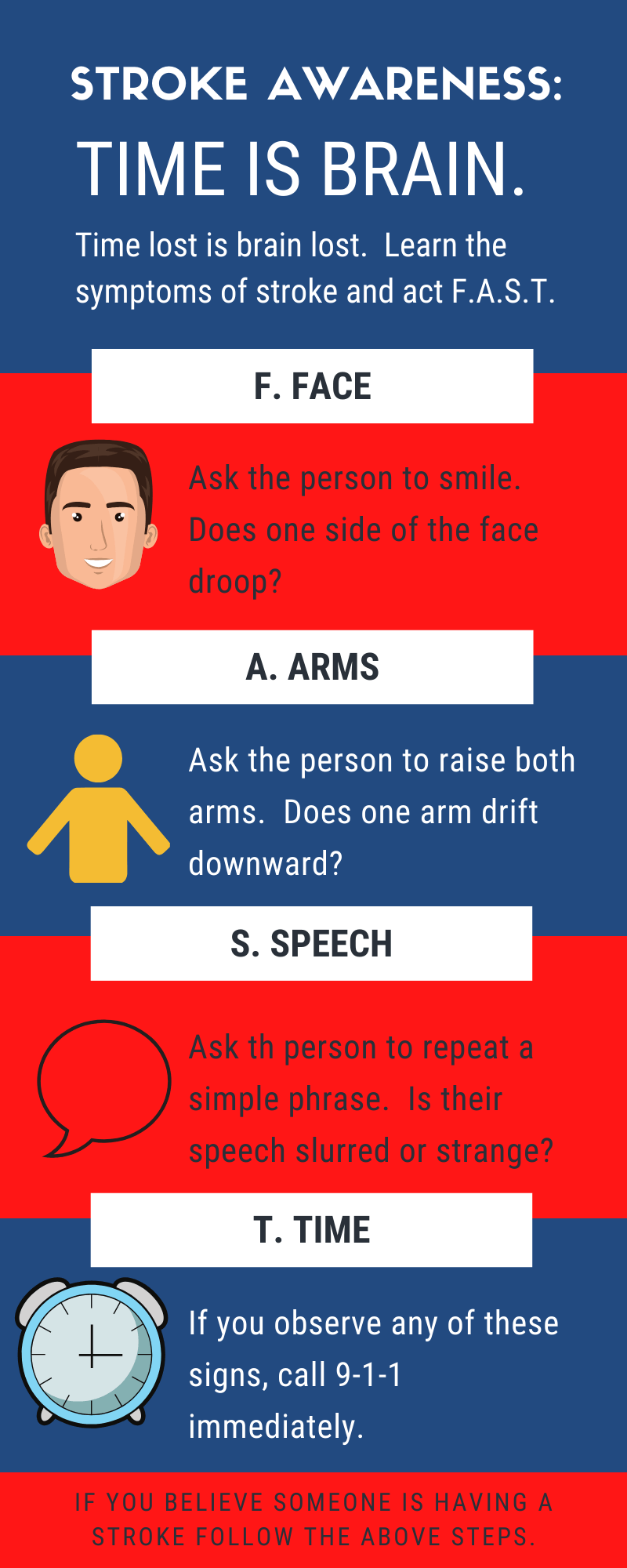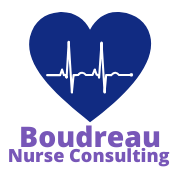Blog
With a Stroke,,,Time Matters
Someone in the United States suffers from a stroke every 40 seconds and these patients are more likely to recover the faster they get treatment. Strokes are largely treatable, as long as such treatment is right away. This is a very important fact that more people need to be aware of. F.A.S.T treatment is Essential!
ACT F.A.S.T.: Key Stroke Warning Signs
F = Face drooping
A = Arm weakness
S = Speech difficulty
T = Time to call 911
Knowledge of the last well known time is also key as treatment will largely depend on it. If you are with someone when they begin showing symptoms of a stroke call 911 and make note of the time you last saw them well. EMS personal and Emergency Department staff will be asking.
Other symptoms to be aware of include a sudden numbness of one's face, arm or leg, especially on only one side of the body. Sudden confusion, understanding or trouble seeing in one or both eyes. Sudden trouble walking, dizziness, loss of balance or coordination. Also, a sudden headache with no known cause. If any of these symptoms come on suddenly call 911 and make note of the last well known time.
Due to medical treatment advances, strokes are heading in the right direction. Once fourth it is now fifth amongst the U.S. leading causes of death.
Key Emergency Room Treatment
Initial hospital treatment should include a head CT, lab work (including PT, INR, CBC and blood glucose), and EKG and a chest x-ray. IV r-TPA Alteplase (TPA) will also be under consideration.
TPA is the gold standard clot-busting drug used if there are no contraindications. "Stroke patients who are treated with TPA within 90 minutes of their first symptom were almost three times more likely to recover with little or no disability." The last known well time should at least be within the last 3 hours but sometimes can be extended to 4.5 hours. The head CT must show no signs of bleeding. Past medical history specifically related to bleeding is also taken into consideration. A hemorrhagic stroke (bleeding in the brain) cannot receive TPA and is most commonly caused by uncontrolled high blood pressure.
Other essential assessments that should occur early include dysphagia screening, prior to any oral intake, and an NIH Stroke Scale by a stroke certified RN or MD.
"In some cases, a procedure to remove the clot causing the stroke is also recommended. Ninety-one percent of stroke patients who were treated with a stent retriever within 150 minutes of first symptoms recovered with little or no disability."
Remember, "stroke is largely treatable. It is a matter of getting the right treatment, RIGHT AWAY!"


